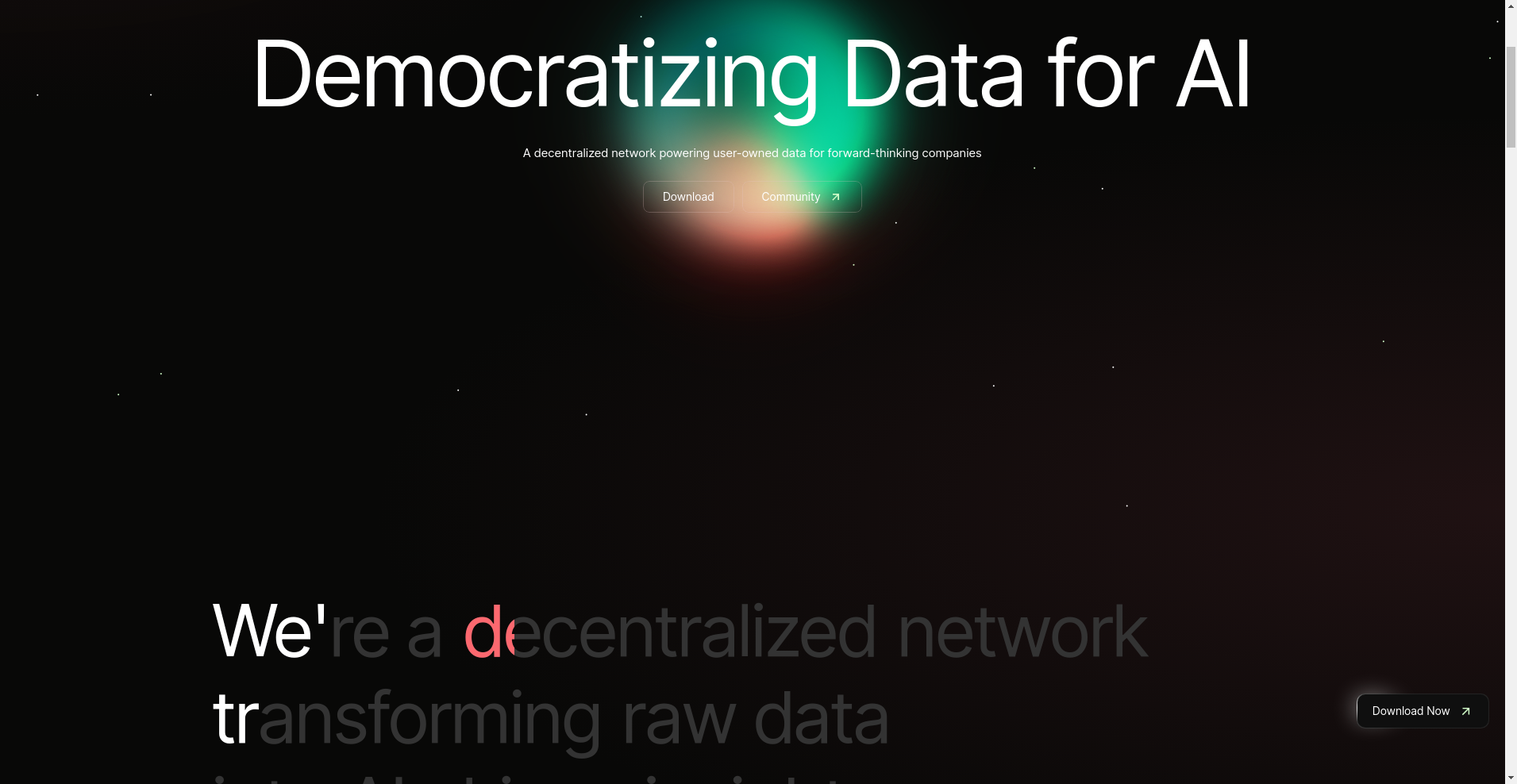Cirus ($CIRUS) Review: A Data-Driven Look at Its Legitimacy, Risks, and Long-Term Potential

What Is Cirus: An Introduction
Cirus ($CIRUS) positions itself as a decentralized platform aimed at democratizing data for AI development. Its core proposition involves enabling individuals to monetize their online data while providing companies with structured, high-quality datasets. By leveraging blockchain technology and community governance, Cirus seeks to create an ecosystem where data owners retain control and earn rewards for participating in a shared network. For a deeper understanding of how data ownership is transforming, explore the concept of data monetization in Web3.
This review offers an impartial analysis, examining the project’s strengths, potential weaknesses, security posture, economic model, and development trajectory. The goal is to provide a clear picture of its legitimacy and risks, grounded solely in available data and technical assessments.
The Team and Vision Behind Cirus
The Cirus Foundation has a publicly disclosed team with several key members, including:
- Michael Luckhoo: Founder and CEO, with a background in the blockchain space and project leadership.
- Mike Miclea: Director and Head of Marketing, responsible for outreach and community growth.
- David Brown: Head of Defense & Security, indicating emphasis on platform security.
- Filipa Pinto: Project Manager, overseeing development milestones.
- Teddy: Senior Lead Developer, critical for technical implementation.
While these individuals have professional profiles linked to the project, there is limited public information about their previous blockchain-specific experience or industry recognition, which could impact perceptions of credibility. The roadmap, as seen in their public documents, outlines several milestones aimed at expanding the platform, improving user engagement features, and enhancing security and scalability. Attainable goals include releasing new versions of the Chrome extension, increasing data privacy features, and onboarding additional data consumers.
Based on available information, the team appears sufficiently motivated and organized to deliver on short-term promises. However, the absence of notable industry veterans and detailed project forecasts suggests a moderate risk of delays or unmet expectations.
Assessing the Security and Integrity of Cirus
The security assessment is primarily based on the comprehensive audit conducted by Hacken, as documented in their official report (view full report). The audit covers approximately 50% of the project's codebase and smart contract systems, offering a partial but valuable insight into its security posture. To understand the implications of such partial audits, consider exploring the completeness of smart contract audits.
Key findings from the audit include:
- Vulnerabilities: Several issues related to access controls and data validation were identified, though none are classified as critical or mission-compromising.
- Security Score: The project received a moderate score, indicating some areas for improvement but no immediate severe risks.
- Code Quality: The overall code structure adheres to standard best practices, with modular design and thorough documentation.
- Centralization Risks: Certain functions and governance processes show partially centralized control points, potentially affecting decentralization ideals.
- Bug Bounties: No ongoing bug bounty programs were reported, which could limit external security testing and community involvement in identifying vulnerabilities.
This analysis underscores that, while no critical security flaws are evident, the audit is incomplete and leaves some residual risk. Given that only half the codebase has been audited, potential undiscovered vulnerabilities remain, especially in the unverified segments. For investors, this implies a need for cautious optimism—security is progressing but not fully verified, necessitating ongoing monitoring and scrutiny.
A Breakdown of Cirus Tokenomics
The project’s economic model revolves around the Cirus token, which appears central to rewarding data contributors, incentivizing network participation, and enabling governance. Although explicit details are limited, the available data and summaries suggest the following key points:
- Total Supply: Approximately 215 million CIRUS tokens, with a circulating supply around 213 million.
- Market Cap: Estimated at roughly $272,835, indicating a low market valuation at this early stage. Understanding token liquidity and market cap for early projects is crucial for assessing such valuations.
- Price: The token trades around $0.00128, with recent slight declines (~2.36%).
- Token Distribution:
- Team & Founders: A significant proportion likely allocated via vesting schedules to prevent immediate large sales.
- Advisors/Partnerships: Not explicitly detailed; presumed minimal in initial phase.
- Community & Rewards: The core intended use, incentivizing user participation via earning distributions.
- Vesting & Lockups: Specific terms are unclear, but typical for early-stage projects to incorporate vesting intervals to reduce market dumping.
- Utility: The token is used for staking, rewards, and governance, although the precise mechanisms are not fully transparent. The distinction between utility and governance tokens is important here.
The economic model appears standard for a nascent blockchain project, with a focus on community incentives. The relatively low market cap and token value imply high growth potential but also high risk—particularly regarding price volatility and token liquidity. The absence of detailed token utility mechanics and vesting schedules complicates a thorough assessment of long-term sustainability and investor protection.
Assessing Cirus's Development and Ecosystem Activity
Current development activity is modest but steady. The project's website showcases ongoing updates, including releases of the Chrome extension and recent integrations with wallet systems. However, real-world usage metrics, such as user adoption figures or transaction volumes, are limited.
Blockchain explorers and social media analytics suggest some growth in community engagement, but there are no prominent partnerships or enterprise adoptions publicly confirmed. The project's focus on a functional MVP (minimum viable product) indicates a credible attempt at market entry, but the absence of substantial ecosystem traction raises questions about scalability and widespread adoption.
Marketing efforts seem primarily community-driven, with testimonials from core users, rather than broad industry penetration. Immediate development milestones appear realistic, but broader ecosystem development will depend on strategic partnerships and user trust, which are yet to be convincingly demonstrated.
The Fine Print: Analyzing Cirus's Terms
From the available documentation, there are no overtly alarming contractual or legal clauses. The platform’s terms emphasize user ownership of data, privacy, and community governance aligned with decentralized principles. However, several aspects warrant attention:
- Hidden Risks of Data Sharing: While data privacy is addressed, explicit clauses about data rights or liability in case of breaches are limited.
- Vesting and Lockups: Specifics of token lockup periods could impact liquidity and price stability.
- Regulatory Uncertainty: The project operates in a nascent regulatory environment, which could pose long-term legal risks if jurisdictions impose restrictions on data monetization or crypto rewards.
- Absence of Insurance or Safeguards: No mention of insurance protocols or dispute resolution mechanisms for data privacy or security issues.
Overall, the legal framework appears straightforward, with standard disclaimer on data privacy. Nonetheless, potential risks related to regulatory changes and data rights should be carefully considered by prospective investors.
Final Analysis: The Investment Case for Cirus
Cirus presents an innovative approach to data monetization within a decentralized AI ecosystem. Its salient strengths include a clear community-driven incentive scheme, a dedicated team, and a platform aimed at democratizing data access. The security audit, though partial, indicates no immediate critical flaws, reinforcing baseline trustworthiness. However, several risks temper enthusiasm.
Key concerns involve incomplete security verification, modest ecosystem traction, and limited transparency around token utility and governance mechanics. The nascent market valuation suggests high growth potential, yet this is coupled with high volatility and speculative risks.
Investors should view Cirus as a speculative project with promising ideas but currently limited operational maturity. Long-term success will depend on ecosystem expansion, security enhancements, and regulatory environment developments.
-
Pros / Strengths
- Innovative decentralized data monetization approach
- Active development with clear roadmap milestones
- Community incentives aligned with user engagement
- No critical security vulnerabilities identified in available audit
- Strong focus on user ownership and data privacy
-
Cons / Risks
- Incomplete security audit—only ~50% of code verified
- Limited ecosystem traction and enterprise adoption so far
- Vague details on token utility, vesting, and governance mechanics
- Regulatory uncertainties surrounding data privacy laws
- Potential centralization points and governance risks
Ultimately, Cirus offers a compelling vision that aligns with emerging trends in AI and data ownership. Its success will rely on technical robustness, strategic partnerships, and regulatory clarity. Prospective participants should conduct ongoing due diligence, considering both its innovative promise and the current developmental limitations.

David Martinez
Quantitative Risk Modeler
Quantitative analyst focused on crypto. I cut through the hype by modeling tokenomics and risk from a purely mathematical standpoint. If the numbers don't work, nothing else matters.
Similar Projects
-
Hentai Token ($HENTAI)
Hentai Token (HENTAI) Review: Crypto Scam Checker & Project Scam Analysis
-
Maker
Maker ($MKR) Review: Analyzing Its Past Performance and Risks
-
Plutus
Comprehensive Review of Plutus DeFi Project | Crypto Scam Checker & Project Review 2024
-
LEO Token
LEO Token ($LEO) Review: Analyzing Its Past Performance and Risks
-
FYM
Ultimate Review of FYM Project: Is This Crypto Scam or Legit?